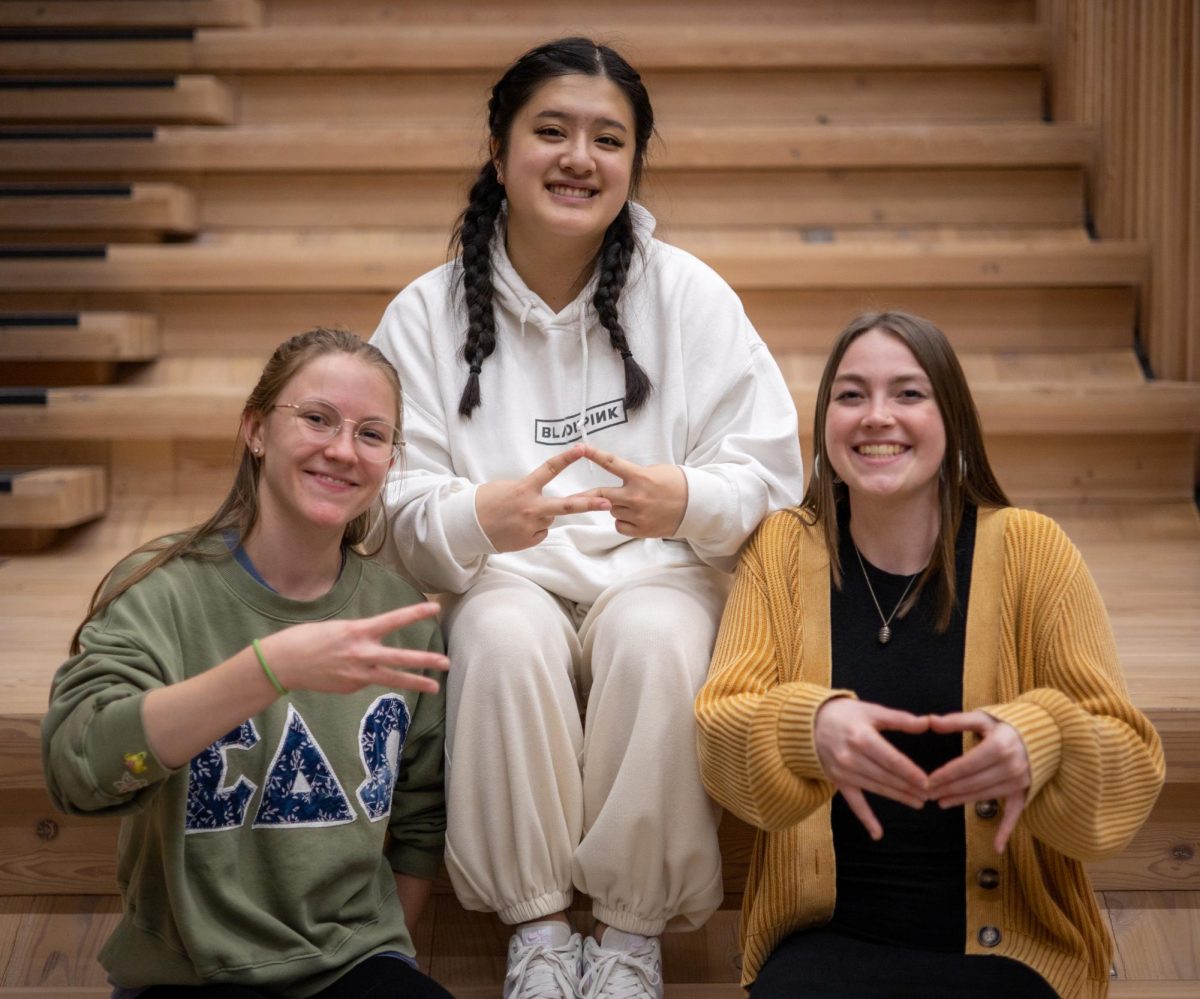Sigma Delta Omega founded its first and only chapter here at Oregon State University.
In April 2006, Tari Tan and other founding members of Sigma Delta Omega sat at a Dutch Bros in Corvallis and decided that OSU was lacking a community of women in STEM.
For 18 years the sorority has continued to grow on campus. Although SDO curates women in STEM, the sorority is home to a variety of majors.
“Surprisingly enough, there is no major requirement (to join), it’s more of a passion for STEM just because our philanthropy is OSU STEM Academy so just inspiring that math, engineering, science drive,” said Britney Nguyen, a fifth-year OSU student and president of SDO. “We honestly have the oddest majors you can probably find. We have music, we have history, we even have Indigenous studies and majors like all over the place, so I’d say we’re very well encompassed.”
Although the sorority is currently confined to OSU, Nguyen is hopeful that the chapter will soon expand. An SDO alumnus who now resides in Massachusetts has been in communication with Nguyen to possibly create a chapter on the East Coast.
Another part of SDO that makes their community unique to OSU is their philanthropy which addresses elementary all the way up to high school, giving the chapter a further reach.
The members do their academic outreach on the OSU campus through OSU STEM Academy where they work with K-12 students on STEM-based curriculum. “I like showing people that STEM is really cool and that it’s helpful but also empowering young people to see that through philanthropy and also in general,” said third-year SDO member Haeli Rowland
Rowland said the member population has also expanded greatly, what started as seven founders, is now up to nearly 100 members at times.
Nguyen explained that by definition SDO translates to “the sum of women of science”. However, in her opinion, it’s a place for members to rely on each other on both hard days and good days.
“I think what makes us unique in that specificity is that, of course, we don’t have any requirements, but also genuinely I haven’t found a community (before SDO) that willingly opens up to everybody with open arms. I think we’re all just very open-minded and willing to learn from others and teach each other new things,” Nguyen said.
At OSU, there is a Collective Greek Council that Sigma Delta Omega is a part of. “CGC sororities are interest-based,” said Hayden Snyder, president of the Collective Greek Council. “One big difference between Panhellenic sororities and CGC sororities is that the CGC sororities don’t have houses, instead they meet on campus.”
“I really liked that it was a science-based community and that I’d be able to find friends that have similar interests,” said Alexa Sullivan, a second-year SDO member. “I’ve made some lifelong friends, I’m living with two roommates I met in SDO and they’re my best friends so it’s just been a really great opportunity to meet people since everyone in SDO is wonderful and they’re so sweet.”
The chapter continues to foster a sisterhood of scientists at OSU and welcomes a variety of members each year.
“(The founding members) made a space and environment where women in STEM can feel empowered and empower each other and inspire one another,” Nguyen said.
For those interested in Sigma Delta Omega, more information about their recruitment can be found at sigmadeltaomega.info/recruitment or on their Instagram page @sigmadeltaomega.


















































































![Newspaper clipping from February 25, 1970 in the Daily Barometer showing an article written by Bob Allen, past Barometer Editor. This article was written to spotlight both the student body’s lack of participation with student government at the time in conjunction with their class representatives response. [It’s important to note ASOSU was not structured identically to today’s standards, likely having a president on behalf of each class work together as one entity as opposed to one president representing all classes.]](https://dailybaro.orangemedianetwork.com/wp-content/uploads/2025/03/Screenshot-2025-03-12-1.00.42-PM-e1741811160853.png)

























